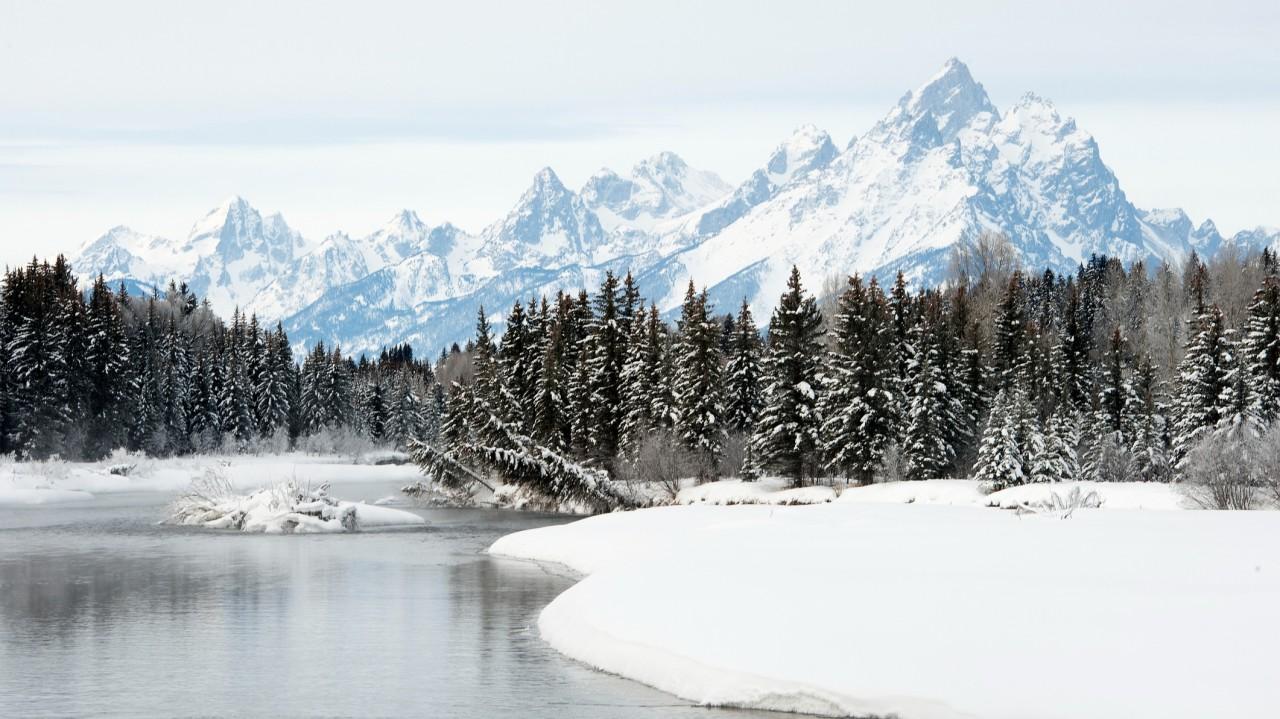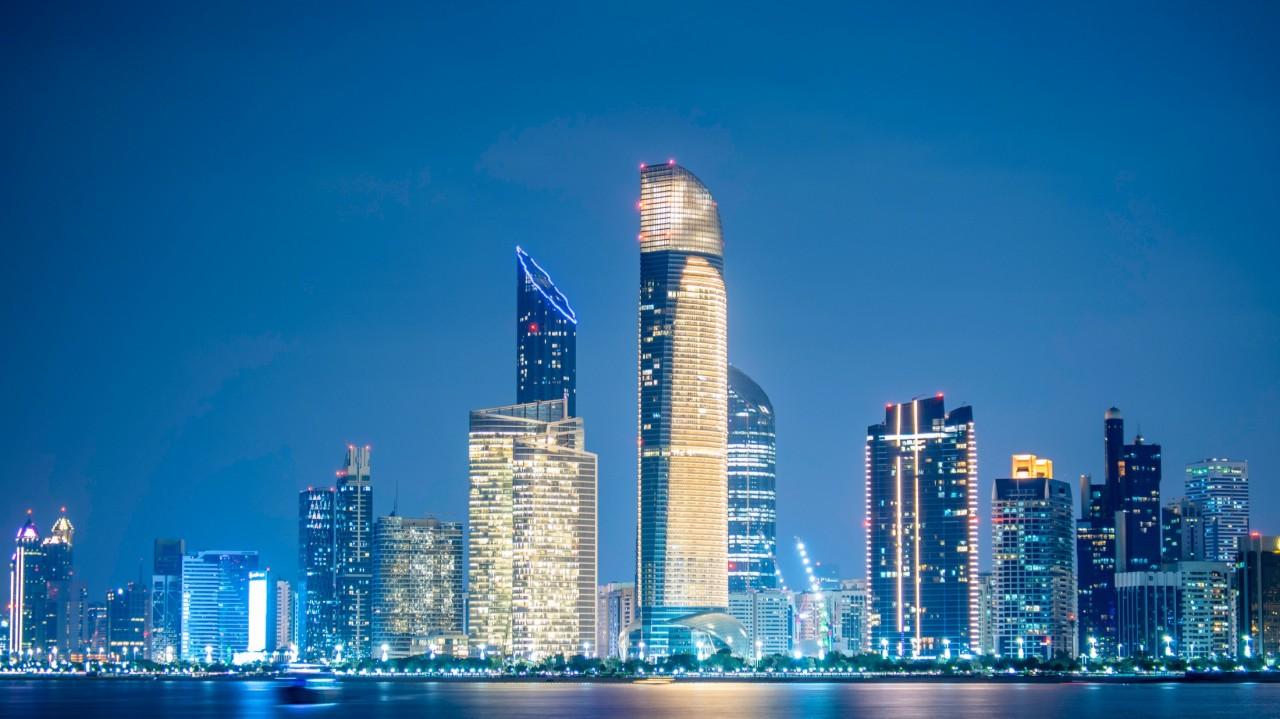Zipped out to Wyoming for Christmas with Mara and our crew, their girlfriends, boyfriend, a few others in tow. Bringing in the new year at altitude, the Tetons. Dusted off an anecdote from 2016 about the wonderful places that shape us, and we them. The value of roaming. Merry Christmas, Happy Hannukah, to you and your crew. E
Week-in-Review: Mon: China’s 30-year bond yields fall below 2% for first time. Putin says the West was pushing Moscow to “a red line we can’t step back from”. US strikes Isis camps and militants in Syria. Canada finance minister Freeland resigns over response to US tariff threats. Moody’s downgrades French sovereign debt. Germany heads for snap election as Scholz loses confidence vote. ECB’s Lagarde says ‘darkest days’ of inflation are in the past. Trump met TikTok CEO Shou Chew in Florida. Russia pulls hundreds of troops out of Damascus. Venezuela frees 533 people arrested over election protests. China IP 5.4% as exp / Ret sales 3.0% (5.0%e), Eurozone PMI comp 49.5 (48.2e) / mfg 45.2 (45.3e) / serv 51.4 (49.5e), UK PMI comp 50.5 (50.6e) / mfg 47.3 (48.5e) / serv 51.4 (51.0e), Argentina GDP -2.1% (-2.6%e), S&P +0.4%. Tue: Russian General in charge of country’s nuclear/chemical/biological defense killed in an explosion. EU to restore diplomatic delegation in Damascus. Israel meets Qatar mediators to discuss Gaza ceasefire with Hamas. Luigi Mangione charged with first-degree murder of UnitedHealth CEO. Scottish government to ban WhatsApp on official devices. UK ILO Unemp rate 4.3% as exp, German IFO curr. Cond. 85.1 (84e), Mexico Ret sales -1.2% (-1.0%e), Canada CPI 1.9% (2.0%e), S&P -0.4%. Wed: Trump opposes stop-gap bill to fund US government. US Supreme Court to review TikTok divest-or-ban law. El Salvador scales back bitcoin policy to seal $1.4bn IMF deal. EPA approves California’s plan to ban sale of new petrol-powered cars by 2035. Fed cuts by 25bps to 4.25/4.5% (hawkish cut), UK CPI 2.6% as exp / core 3.5% (3.6%e) / RPI 3.6% (3.7%e), Eurozone CPI 2.2% (2.3%e) / core 2.7% as exp, US Housing starts 1289k (1345k e), New Zealand GDP -1.5% (-0.4%e), S&P -3.0%. Thur: US diplomats to meet Syrian rebel leader in Damascus. Brasil intervenes in FX markets to support the real. Moscow evacuates 4,000 pro-Iranian fighters from Syria to Tehran. US GDP QoQ 3.1% (2.8%e), US Jobless claims 220k (230k e) / Cont claims 1874k (1892k e), BoE Bank rate 4.75% as exp, Mexico’s central bank cuts to 10%, Taiwan Benchmark interest rate 2.0% as exp, Sweden Policy rate 2.5% as exp, Norway Deposit rate 4.5% as exp, S&P -0.1%. Fri: Trump demands EU purchase “large scale” US oil and gas or face tariffs. Trump expects 5% defense spending from NATO members. Chinese 1y yield fall to 1.02%, their lowest level since GFC. US to remove $10m bounty on Syrian leader. Russian missile attack leaves Kyiv residents without heating. Switzerland and EU agree economic deal after decade of talks. UK government borrowing falls to lowest level since 2021. US Core PCE 2.8% (2.9%e) / Personal income 0.3% (0.4%e) / spending 0.4% (0.5%e), Univ Michigan Sentiment 74.0 as exp, Canada Retail Sales +0.6% (0.7%e), S&P +1.1%.
Weekly Close: S&P 500 -2.0% and VIX +4.55 at +18.36. Nikkei -1.9%, Shanghai -0.7%, Euro Stoxx -2.8%, Bovespa -2.0%, MSCI World -2.5%, and MSCI Emerging -3.1%. USD rose +17.0% vs Ethereum, +4.4% vs Bitcoin, +2.4% vs South Africa, +1.8% vs Australia, +1.7% vs Yen, +1.3% vs Indonesia, +0.9% vs Canada, +0.7% vs Euro, +0.7% vs Turkey, +0.5% vs Brazil, +0.5% vs Sweden, +0.4% vs Chile, +0.4% vs Sterling, +0.3% vs China, and +0.3% vs India. USD fell -1.6% vs Russia, and -0.3% vs Mexico. Gold -1.1%, Silver -3.4%, Oil -1.9%, Copper -2.3%, Iron Ore -2.8%, Corn +1.0%. 10yr Inflation Breakevens (EU -4bps at 1.76%, US -5bps at 2.30%, JP +8bps at 1.51%, and UK -1bp at 3.50%). 2yr Notes +7bps at 4.31% and 10yr Notes +13bps at 4.52%.
Moves Since Nov 4th (pre-election): S&P 500 +3.8% and VIX -3.62 at +18.36. Nikkei +1.7%, Shanghai +1.8%, Euro Stoxx -1.4%, Bovespa -6.4%, MSCI World +1.8%, and MSCI Emerging -5.1%. USD rose +5.3% vs Australia, +5.2% vs Brazil, +4.4% vs South Africa, +4.3% vs Euro, +4.1% vs Russia, +3.8% vs Chile, +3.3% vs Canada, +3.1% vs Sterling, +2.8% vs Sweden, +2.8% vs Indonesia, +2.7% vs Yen, +2.7% vs China, +2.5% vs Turkey, and +1.1% vs India. USD fell -29.3% vs Bitcoin, -27.5% vs Ethereum, and -0.2% vs Mexico. Gold -4.5%, Silver -9.4%, Oil -1.7%, Copper -8.3%, Iron Ore +1.7%, Corn +3.8%. 10yr Inflation Breakevens (EU -9bps at 1.76%, US +2bps at 2.30%, JP +25bps at 1.51%, and UK -8bps at 3.50%). 2yr Notes +15bps at 4.31% and 10yr Notes +24bps at 4.52%.
2024 Year-to-Date Equity Index Close (high to low): Argentina +109.9% priced in US dollars (+165.4% priced in pesos), NASDAQ +30.4%, Israel +25.5% priced in US dollars (+27.2% in shekels), S&P 500 +24.3%, MSCI World +17.5% in US dollars, Taiwan +17.4% in US dollars (+25.5% in Taiwan dollars), HK +16.3% (+15.7%), Czech Republic +15% (+24.1%), Hungary +13.3% (+29.9%), Germany +11.9% (+18.7%), Singapore +11.8% (+14.8%), Malaysia +11.4% (+9.4%), Russell +10.6%, China +10.2% (+13.2%), Turkey +9.3% (+30.2%), Canada +8% (+17.4%), South Africa +7.4% (+7.7%), Belgium +7.1% (+13.7%), Spain +7% (+13.5%), India +6.3% (+8.5%), Greece +5.9% (+12.3%), Netherlands +4.9% (+11.3%), Italy +4.9% (+11.3%), Japan +4.4% (+15.7%), Ireland +4.2% (+10.6%), UK +3.2% (+4.5%), Euro Stoxx 50 +1.4% (+7.5%), Colombia +0.4% (+14.5%), Saudi Arabia -0.8% (-0.6%), Austria -1.5% (+4.5%), New Zealand -2.1% (+9.6%), Norway -2.2% (+9.5%), UAE -2.4% (-2.4%), Australia -2.6% (+6.3%), Poland -2.7% (+1.3%), Chile -3.7% (+8.1%), Thailand -3.8% (-3.6%), Switzerland -3.9% (+2.2%), Sweden -5.8% (+3.3%), Philippines -6.4% (-0.7%), Indonesia -8.7% (-4%), France -9.1% (-3.6%), Finland -12.9% (-7.6%), Denmark -16.7% (-11.5%), Portugal -18.4% (-13.5%), Korea -19.3% (-9.5%), Mexico -27.2% (-13.6%), Brazil -27.5% (-9%).
Anecdote (May 2016): Opened the hatch and he bolted. A dead run. Off I jogged, in steady pursuit. The two of us on a rainy morning, deep into the woods, sublime spring glory. Shackleton’s a golden, generous spirit, nine months old. Meaning he’s equal part heaven and hellion. Barking, bolting. Chewing, humping. He loves rabbits, deep mud, and dreams of going Guantanamo on the squirrels that terrorize his long days, confined to our yard by an electric fence. We spent our first year in Greenwich without one. Our dogs roaming free, our barefoot kids too. Shaking the sleepy neighborhood like a California quake. Which we no doubt are and will remain. But while we mold the places we live, they shape us in turn. We become their creation, and they ours. Which is why life’s more interesting for having roamed. One thing you learn along the way is that every place is the same, even if at first glance it appears otherwise. Because people are the same, and places are really not much more than their people. Their wants and needs, fears and greed. But every place is somehow different too. I best like towns where they fear avalanches. Or great white sharks. Rattle snakes and cougars lift my spirit too; there are worse ways to go. In Greenwich they fear Dodd Frank and deer ticks. Both so small, lacking drama, dignity. But beneath fears of regulations and quarterly redemptions lay wonderful things too. New England beauty, the Sound, sanctuaries, estuaries, soaring osprey, hidden open spaces, treasures, and everywhere, all the time, ambition. Fierce competition. Which is as important a part of life as any and may even be life itself. Our nature. And as we ran through the forest, Shackleton leading, hunting, chasing scents, leaping logs, at home in himself, I felt it too.
Good luck out there,
Eric Peters
Chief Investment Officer
One River Asset Management
Disclaimer: All characters and events contained herein are entirely fictional. Even those things that appear based on real people and actual events are products of the author’s imagination. Any similarity is merely coincidental. The numbers are unreliable. The statistics too. Consequently, this message does not contain any investment recommendation, advice, or solicitation of any sort for any product, fund or service. The views expressed are strictly those of the author, even if often times they are not actually views held by the author, or directly contradict those views genuinely held by the author. And the views may certainly differ from those of any firm or person that the author may advise, converse with, or otherwise be associated with. Lastly, any inappropriate language, innuendo or dark humor contained herein is not specifically intended to offend the reader. And besides, nothing could possibly be more offensive than the real-life actions of the inept policy makers, corrupt elected leaders and short, paranoid dictators who infest our little planet. Yet we suffer their indignities every day. Oh yeah, past performance is not indicative of future returns.





